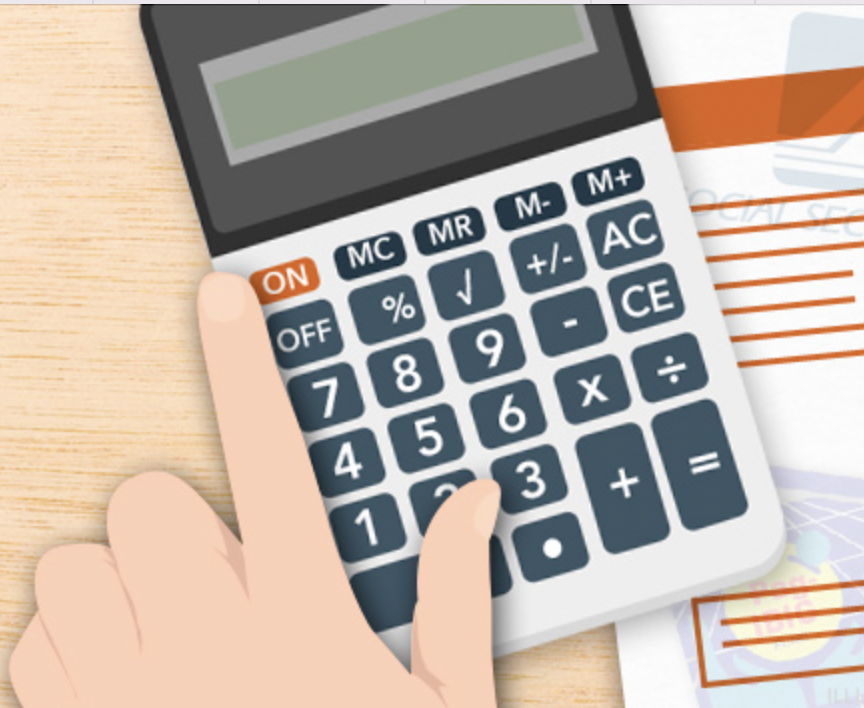How to Compute 13th Month Pay?

For Filipinos, there is more than the Christmas celebration that they look forward to at the end of the year. The 13th month pay is one of the things that Filipino employees anticipate because it is an opportunity for them to splurge on gifts for their loved ones, and themselves. Regardless of what you intend to do with the money, everyone is entitled to receive their 13th month pay as mandated by law.
This guide will show you how your 13th month pay is computed and who is entitled to receive it. See if you qualify to receive this benefit.
What is the 13th Month Pay Law?
The 13th month pay is mandated by the Philippine government for all employers to pay out to their employees by the end of the year. It is not to be confused with a Christmas bonus. As you will find out later on, there is a huge difference between your bonus and the 13th month pay. This benefit isn’t discretionary to the employer; it is a must and employers are obligated by law to pay it.
All eligible employees must receive their 13th month pay on or before December 24 of a particular year. It is an amount paid in a lump sum, although some employers opt to divide it into two payments for each half of the year (for example, the first half is paid in June and the other half is paid in December). There are legal consequences that an employer will face for their failure to pay this to their employees.
The 13th month pay law was signed by President Ferdinand Marcos in 1975 under Presidential Decree No. 851. The law was designed to alleviate issues regarding minimum wage. It has since been part of the Philippine law and continues to be implemented today. The Philippines was among the first countries to adopt this law until other countries in Europe developed their own system in the 1970s.
Guide to Computation of the 13th Month Pay
How do you compute your 13th month pay? If this is your first time receiving (or not), you might be curious to know how this pay is calculated and what you can expect to receive from your employer.
There is a basic computation formula for the 13th month pay in the Philippines. Essentially, this is the formula that your employer uses: Basic monthly salary x the length of employment ÷ 12 months (or one year).
For example, your basic salary is PhP 15,000 per month and you’ve been employed for 12 months. Multiply PhP 15,000 by 12 so that equals PhP 180,000. Now, you must divide that amount by 12 months, which is PhP 15,000. Your 13th month pay will be PhP 15,000.
Even if you are newly employed, you still qualify for a 13th month pay. The pay will be prorated based on the number of months you have worked for your company by the time of the payout. For example, using the same PhP 15,000 base monthly salary as an example, you will multiply that by 6 months (for your working period with your employer). The total is PhP 90,000, which you must divide by 12. You will receive PhP 7,500 for your 13th month pay since you only worked for 6 months within the applicable period.
Who is Eligible for the 13th Month Pay?
The Department of Labor and Employment (DOLE) states that all private sector employees, including rank-and-file employees, are eligible to receive their 13th month pay. Every employee is eligible to receive this pay as long as they have worked with the company for at least a month within the calendar year.
Rank-and-file employees are those that do not hold managerial positions within the company. Therefore, anyone who is in a position of authority to hire or discharge employees are not eligible to receive the 13th month pay.
All employees that are eligible to receive the 13th month pay must do so even if they had been terminated from the job or resigned before the issuance of the pay. It will be computed using the formula above.
When Can You Get Your 13th Month Pay?
The Philippine 13th month pay law dictates that this monetary benefit shall be paid on or before December 24 of that calendar year. Most employers release their 13th month pay during the first week of December while others wait until the Christmas week. It depends on the employer’s discretion as long as it is within the release period stated by the law.
FAQs on 13th Month Pay in the Philippines
If you want more information about the 13th month pay in the Philippines, here are some questions to help you out.
Is it taxable?
Your 13th month pay is only taxable if the amount exceeds PhP 90,000. The previous tax-exempt rate is at PhP 82,000.
What if the employer fails to pay the 13th month pay?
An employer who fails to issue the 13th month pay to their employees could face administrative cases. According to Presidential Decree No. 851, all employees have the right to receive their 13th month pay as long as they are considered of regular status.
When is the 13th month pay issued to terminated or resigned employees?
The 13th month pay shall be paid to the terminated or resigned employees as part of their back or final pay. The pay will be issued within a month or two following the termination or resignation. Therefore, it is not issued on the same schedule as other employees. Each company has its specific guidelines on the issuance of back or final pay, so it is best to consult with your HR department about the release date of your 13th month pay.
Is the 13th month pay different from your Christmas bonus?
Yes. The Christmas bonus is given by your employer based on their own discretion. Bonuses are often performance-based so employers will give them to employees who have excellent performance at their job, as a form of incentive.
Meanwhile, the 13th month pay is mandatory and it should be provided by the employer because it is required by the law. If not, they could face serious legal consequences.
Is your maternity leave included in the 13th month pay computation?
No. If you had your maternity leave within the calendar year of computation of the 13th month pay, those days will be excluded from your 13th month benefit. For example, if you took two months of maternity leave, you will be paid only for the 10 months for that particular year. After all, your maternity leave is also paid leave.
Do government employees receive 13th month pay?
No, government employees do not receive 13th month pay. Others who are not qualified to receive 13th month pay are contractual employees, real estate brokers, freelancers, and anyone who earns their living based on commission.
In addition, managers also are not entitled to receive their 13th month pay. It is only provided to rank-and-file employees. However, some employers can issue this payment at their discretion.
Government employees can still get their monetary benefit for the holiday season in the form of a mid-year bonus and year-end bonus. The mid-year bonus is issued to government employees around June or July. Meanwhile, the year-end bonus is issued from November to December. The bonuses are equivalent to a month’s salary for government employees, on top of any other cash gifts they receive.
Are resigned employees entitled to receive 13th month pay?
Yes. Even if you already resigned from your employment, you are still qualified to receive your 13th month pay as long as you worked for more than a month within that calendar year. For example, if you resigned in May, your 13th month pay will be computed to cover the months of January to May.
How do you report when your employer does not give you the 13th month pay?
You can call the DOLE hotline to report if your employer fails to issue the 13th month pay to their employees. You can also go to the DOLE website and fill out the online form with the details of your complaints.
What is the 14th month pay?
The 14th month pay is entirely different from the 13th month pay in the Philippines. First off, the latter is mandatory as it is mandated by law. On the other hand, the 14th month pay remains to be discretionary to the employer. Not all employees have a right to receive the 14th month pay because it will be based on the practices and standards of a particular employer. It can be considered a bonus to employees.
Currently, the House seeks to pass a bill that would also mandate a 14th month pay to employees in the Philippines.
Final Word
The 13th month pay law in the Philippines is a huge monetary advantage for employed Filipinos. This allows the working class to celebrate Christmas and New Year, especially the minimum wage earners. With this information on how to compute your 13thmonth pay, you have an idea of the amount of money you expect to receive. Make sure to be wise about how you spend your money so you can make the most of this benefit.






